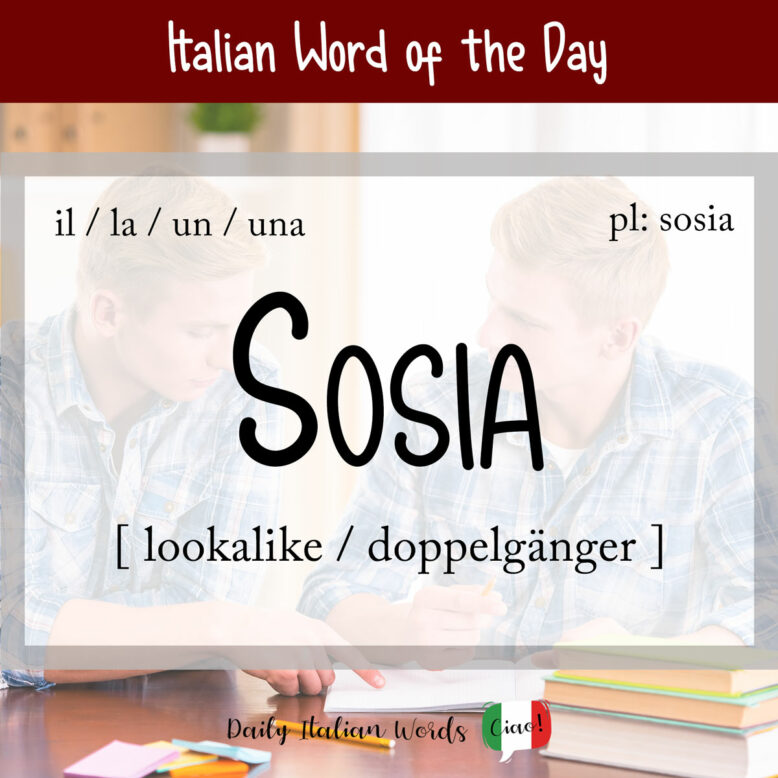The other day, my husband and I decided to watch Johnny Stecchino, an Italian comedy from the early 1990s directed by and starring the fantastically funny Roberto Benigni. The story follows Dante, a naive yet kind-hearted bus driver and part-time banana thief, whose uncanny physical resemblance to Sicilian mobster-turned-police informant Johnny Stecchino lands him in hot water when he visits his new girlfriend in Palermo. Sounds crazy? It is – but it’s two hours of light-hearted fun for anyone interested in Italian cinema!
The film made me think of the Italian word sosia which can translate into English in numerous ways including lookalike, doppelgänger, alter ego, double, twin or spitting image. It can be traced back to the early Roman play Amphitruo in which the god Mercury changes his appearance to look like the servant Sosia.

Sosia is an invariable noun, meaning that the ending does not change to match the gender or number of the subject in question.
- il / un sosia = masculine, singular
- la / una sosia = feminine, singular
- i / dei sosia = masculine, plural
- le / delle sosia = feminine plural
Dante è il sosia del boss mafioso Johnny Stecchino.
Dante is the spitting image of the mob boss Johnny Stecchino.
It is interesting to note that linguist Aldo Gabrielli and freelance journalist Fausto Raso, contend that sosia should always be masculine (un / il / i / dei sosia), even when female subjects are in question. Another article in the Corriere della Sera reiterates the same sentiment.
However, because the feminine version is widely used in spoken Italian and is recognised in the vast majority of dictionaries (Treccani to name one), we see no reason not to use it.
Ieri ho visto una donna che ti assomiglia molto. Potrebbe essere la tua sosia!
Yesterday I saw a woman that looks a lot like you. She could be your doppelgänger!

We’ve already seen loads of translations in English, so here are some possible synonyms for sosia in Italian:
- controfigura = double, spitting image, body double (in cinema)
- copia esatta / copia sputata = exact image / spitting image
- fotocopia = lit. photocopy, used in colloquial and friendly conversation
- clone = clone (used in a playful way)
- gemello = twin (used in a playful way)
- essere come due gocce d’acqua = to be identical (lit: to be like two drops of water)
Heather Broster is a graduate with honours in linguistics from the University of Western Ontario. She is an aspiring polyglot, proficient in English and Italian, as well as Japanese, Welsh, and French to varying degrees of fluency. Originally from Toronto, Heather has resided in various countries, notably Italy for a period of six years. Her primary focus lies in the fields of language acquisition, education, and bilingual instruction.


